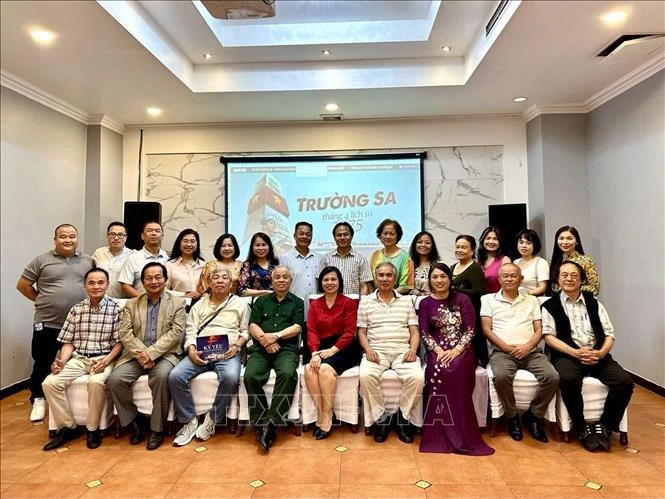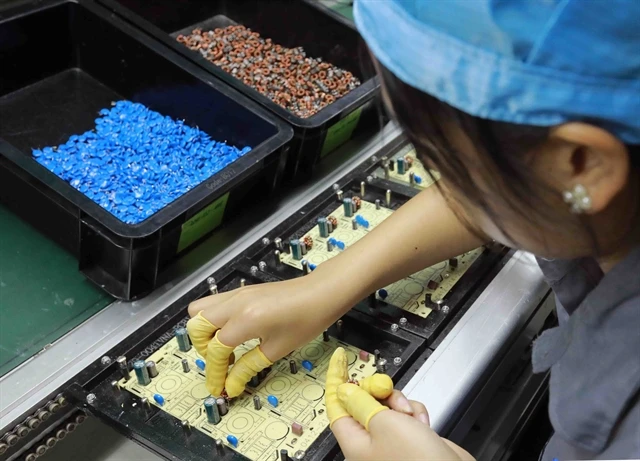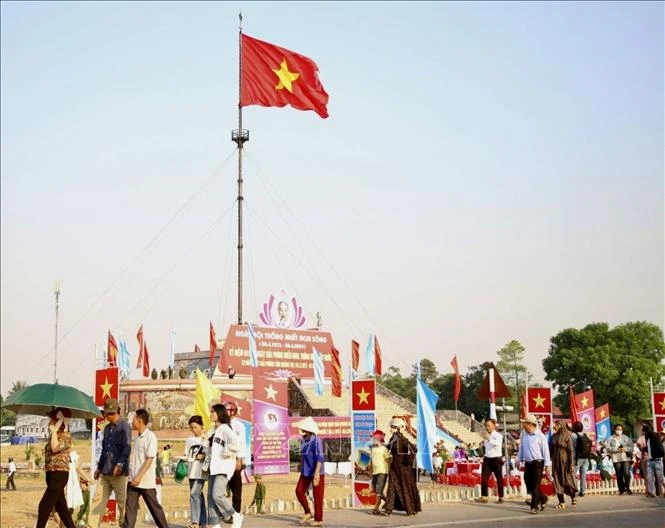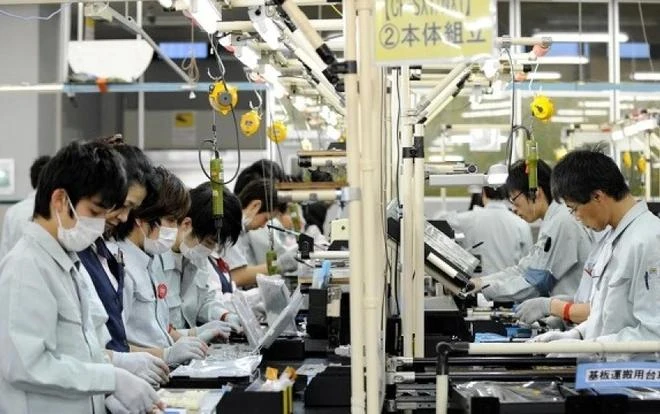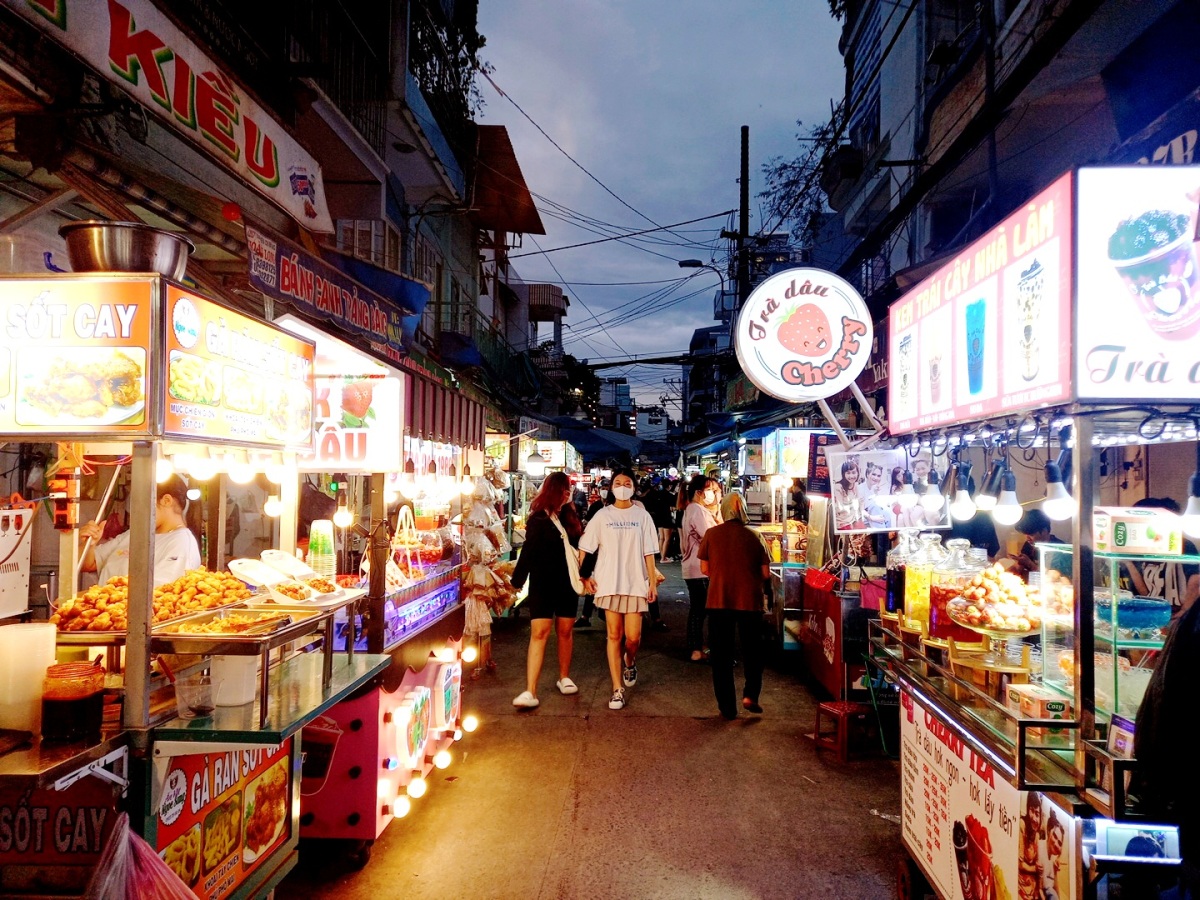
The border guards of the central province of Quang Tri enhance the communications work to raise the awareness of the Party’s policy and State’s regulations on domestic violence prevention in local people in Ba Nang mountainous commune of Dakrong district. (Photo: VNA)

Communal officials are instructing residents in remote areas how to improve the quality of family life and prevent domestic violence. (Photo: VNA)
Back in 2016, June was designated by the Prime Minister as the National Action Month for Prevention and Control of Domestic Violence, aiming to raise public awareness and prevention of the violence that impacts women and children.
Themed “End Violence, Cultivate Love”, this year’s event is an opportunity for society to join national efforts to preserve and promote cultural traditions and promote decent behaviour in the family, and build progressive, happy and sustainable families.

The Department of Culture, Sports and Tourism of the northern mountainous province of Cao Bang organises a contest on June 21-22 to raise public awareness of the law on domestic violence prevention and control . (Photo: VNA)

100 couples tie the nuptial knots in a massive wedding in Ho Chi Minh City in 2022. (Photo: VNA)
In 2019, there was a national study on violence against women in Vietnam, conducted by the Ministry of Labour, Invalids and Social Affairs, General Statistics Office and the UN Population Fund (UNFPA) in Vietnam. According to the report, two in three women (62.9%) experienced one or more forms of physical, sexual, emotional and economic violence, and controlling behaviours by their husbands in their lifetime. Some 31.6% reported at least one type of violence in the 12 months preceding the interview.
In the country, one in three women (32%) experienced physical and/or sexual violence in their lifetime. Almost all women (90.4%) who experienced the physical and/or sexual violence by husbands did not seek any help, and only a very few (4.8%) of them reported the violence to the police.
The study also showed that the costs of physical and/or sexual violence by an intimate partner are a drain on the productivity of women, resulting in a great loss to the economy. In 2019, the economy suffered a loss of 100 quadrillion VND (3.93 trillion USD) or 1.8% of the GDP, up 0.2% as compared to 2012, said the report.

Women account for over 50% of the Vietnamese population and 46.7% of the workforce. In 2019, domestic violence against women cost Vietnam an estimated 100 quadrillion VND, or 1.8% of the country’s GDP. (Photo: VNA)
Last year, Vietnam carved out encouraging achievements in domestic violence prevention. Several targets surpassed set goals for 2025, such as 74.6% of the victims of the domestic and gender-based violence were detected and provided with support measures, while 100% of those who were found to have committed domestic or gender-based violence receive advice and consultations.
However, domestic violence remains a big headache in society, with more than 3,200 cases reported in some 3,100 families in 2023, falling 1,214 cases from 2022. The most common form was physical abuse (1,520 cases), followed by emotional (1,404), economic (230) and sexual (110). Women were 4.6 times more frequently victims of the violence than men.
Punishments were meted out for over 2,900 perpetrators, 129 of whom were criminally prosecuted.

Exhibition of paintings winning awards in a painting contest on gender equality and prevention of domestic and gender-based violence in Hanoi. (Photo: VNA)
Gender inequality is the root cause of domestic violence, experts have said.
According to Minister of Labour, Invalids and Social Affairs Dao Ngoc Dung, victims’ fear of discrimination suggests they suffer in silence, and is among the main reasons cases go unreported. Most of the domestic violence survivors do not seek help from authorities unless it is very serious abuse over a long period of time that could lead to divorce.

The Vietnam Family Day (June 28) will be marked with a five-day festival taking place this week in the northern port city of Hai Phong. This is a practical activity to celebrate the day, honouring the traditional cultural values of Vietnamese families. With the theme “Happy Family – Prosperous Nation”, the festival contributes to raising community awareness about the role and position families play in building and protecting the homeland.
Over the past years, Vietnam has made efforts to stamp out domestic violence, part of the sustainable development goals and its international commitments to ensure family happiness, and promote the development of the “cell” of the society through an arsenal of important policies.
With the Law on Domestic Violence Prevention and Control adopted by the 12th National Assembly (NA) in 2007, Vietnam became a pioneer to legalise the basic issues of the UN Charter on human rights.
Since its application in 2008, the law has raised public awareness of domestic violence prevention, contributing to protecting the victims and reducing cases and levels of domestic violence.
It lays a foundation for the Government to issue a decree that stipulates administrative punishment for violations in the area.

A communications initiative on building happy families in response to the Vietnamese Family Day (June 28, 2023) (Photo: VNA)
At the 15th NA’s 4th sitting in 2022, legislators adopted the revised Law on Domestic Violence Prevention and Control, comprising six chapters with 56 articles regulating the prevention, support and settlement of violations. The law also regulates state management and responsibility of agencies, organisations, families and individuals in cases of domestic violence.

A happy moment of a Mong ethnic dad and his son (Photo on the left). A Muong ethnic family in Hoa Binh province make chung cake on Tet holiday. (Photo: VNA)
Most recently, the Prime Minister signed a decision, issuing a plan to carry out the law. A wide range of domestic violence prevention policies have been implemented drastically to improve public awareness and give timely support to the victims.
“…There is a huge workload needed to be done to bring a better life to women, give them more opportunities to contribute to the society and country, and to ensure that no one is left behind. There are cultural barriers and policies that affect the development of women and girls. There are many women experiencing domestic violence …”
Prime Minister Pham Minh Chinh said at a ceremony to mark the Vietnamese Women’s Day (October 20) in 2021.


